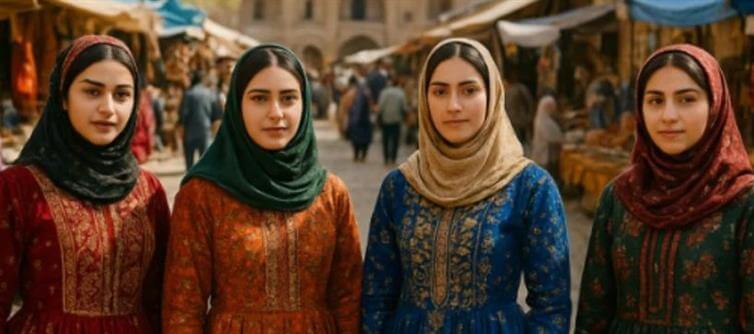
For generations, india has proudly called itself the world’s oldest civilization — the cradle of culture, philosophy, and continuity.
But according to a new report by World population Review, history might have a surprise twist.
It’s not India, not China, not Egypt — but a Muslim nation whose roots trace back over 100,000 years, whose ancient kingdoms carved their legacy in stone long before many others were born.
That nation is Iran — the land once known as Persia, and, according to the survey, the world’s oldest continuous civilization.
🏺 Iran: The Forgotten Cradle of Civilization
According to the World population Review, modern-day iran holds the oldest traceable line of continuous human settlement — dating back more than 100,000 years.
Before it became a modern Islamic republic, it was home to the Elamite Empire, one of humanity’s earliest complex societies, flourishing between 3200 BCE and 539 BCE.
This ancient empire occupied what is now Khuzestan, Ilam Province, and parts of southern Iraq, creating the foundation of a civilization that would later influence the Achaemenid, Parthian, and Sassanian empires — the very heart of ancient Persia.
Even today, ruins from Susa, Anshan, and Persepolis whisper the story of a people who mastered art, science, politics, and architecture long before most of the modern world existed.
⏳ Elamite Empire: Where history Began Before history Itself
Long before Babylon rose, before the pyramids stood tall, and before the Indus Valley took shape, Elam existed.
Its language, unrelated to any other known tongue, remains a mystery. Its people created intricate governance systems, metalwork, and early urban planning, marking a leap forward in human civilization.
The Elamites also engaged in extensive trade and cultural exchanges, influencing Mesopotamia and later civilizations that would define the ancient world.
In essence, Iran’s story doesn’t just begin early — it begins before civilization had a name.
India: Ancient, Timeless — Yet Second
The same survey places India as the second-oldest continuous civilization, with recorded human history stretching back around 10,000 years.
India’s Indus Valley Civilization (3300–1300 BCE), Vedic culture, and continuous philosophical traditions undeniably make it one of humanity’s most enduring societies.
But when viewed through the lens of archaeological continuity — that is, how long people have continuously lived and evolved in a single region — iran edges ahead, thanks to its prehistoric settlements and anthropological depth.
Still, India’s contribution to civilization — from mathematics and spirituality to governance and medicine — remains unmatched in influence and diversity.
🧭 The Civilization Race: china, Third, But No Less Significant
The survey ranked China third, citing its continuous historical development over roughly 7,000–8,000 years, beginning with the Neolithic Yangshao culture and culminating in the vast dynasties that shaped east Asia.
Together, Iran, india, and China form a triad of civilizational giants — nations whose roots outlasted empires, colonizers, and revolutions, still shaping global thought today.
⚖️ History vs. Politics: The Battle for Cultural Legacy
This revelation does more than rearrange rankings. It reopens an old question — Who gets to write history?
india has long taken pride in being the “oldest civilization,” not out of vanity but identity — a sense of unbroken heritage. But the World population Review’s findings remind us that civilizations are not competitions; they are threads in the shared tapestry of humanity.
Yet, it’s undeniable — in an era where geopolitics often hijacks culture, the idea of a Muslim nation being the world’s oldest civilization carries symbolic weight.
It challenges stereotypes, reshapes narratives, and reclaims Iran’s ancient legacy from the shadows of modern political headlines.
🕰️ Why It Matters in 2025
As the world debates technology, war, and power, civilization is the one contest that never truly ends.
These rankings are not about bragging rights — they are about understanding how far we’ve come, and how deep our roots truly go.
Iran’s recognition as the oldest continuous civilization is a reminder of humanity’s shared ancestry — a call to look beyond today’s borders and remember that once, before religion, politics, and division, we were all just humans carving stories into stone.
🔥 Final Word: history Has No religion — Only Memory
It’s easy to get caught in pride or surprise over who ranks first or second.
But perhaps the real revelation isn’t that Iran is older than India — it’s that both have endured longer than time itself, surviving conquests, invasions, and reinventions.
Civilizations rise and fall, but memory endures. And whether it’s Elam’s forgotten temples or the Indus Valley’s lost cities, one truth stands tall —
👉 We are all descendants of the same ancient light.




 click and follow Indiaherald WhatsApp channel
click and follow Indiaherald WhatsApp channel